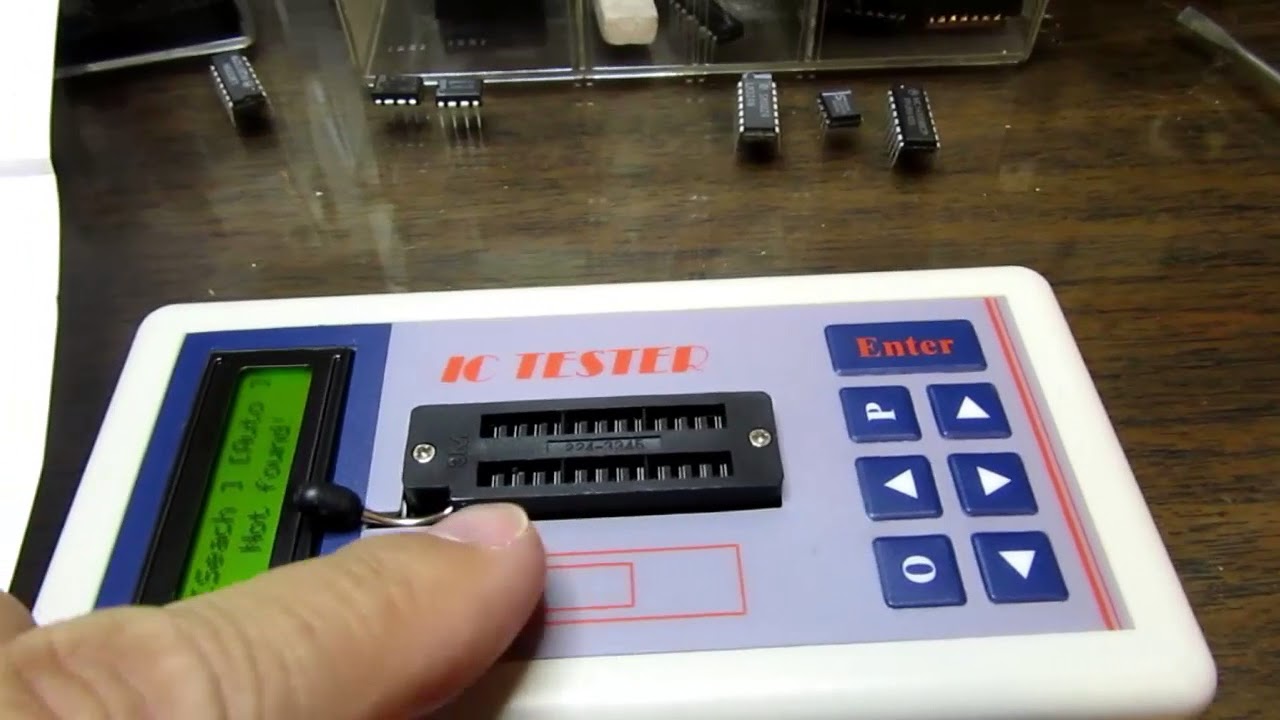
IC testers are crucial in the world of electronics. But what exactly do they do? IC testers ensure that integrated circuits (ICs) function correctly before they are used in devices. These testers check for defects, performance issues, and overall reliability. Without them, faulty ICs could end up in your gadgets, causing malfunctions. Imagine your smartphone or laptop failing because of a tiny, unchecked flaw. IC testers prevent this by running a series of tests on each chip. They simulate real-world conditions to see how the ICs will perform. This process helps manufacturers maintain high-quality standards and keeps our tech running smoothly.
What is an IC Tester?
An IC tester is a device used to test integrated circuits (ICs) to ensure they function correctly. These testers are crucial in the manufacturing process of electronic devices. Let's dive into some fascinating facts about IC testers.
-
IC testers can evaluate both digital and analog circuits, ensuring comprehensive testing.
-
They can simulate real-world conditions to test how ICs perform under different scenarios.
-
Modern IC testers can handle thousands of pins simultaneously, making them highly efficient.
-
These testers can detect even the smallest defects in an IC, ensuring high-quality products.
Types of IC Testers
Different types of IC testers exist, each designed for specific testing needs. Understanding these types can help in selecting the right tester for a particular application.
-
Functional Testers check if the IC performs its intended function correctly.
-
Parametric Testers measure the electrical parameters of an IC, such as voltage and current.
-
Burn-In Testers stress the ICs by running them at high temperatures to identify early failures.
-
In-Circuit Testers test the ICs while they are still on the circuit board, ensuring they work in their intended environment.
Importance of IC Testers in Manufacturing
IC testers play a vital role in the manufacturing process of electronic devices. They help maintain quality and reliability, which are crucial for consumer satisfaction.
-
They reduce the risk of defective products reaching the market.
-
IC testers help in identifying manufacturing defects early, saving time and resources.
-
They ensure that ICs meet industry standards and specifications.
-
These testers can also help in improving the design of ICs by providing valuable feedback.
Advanced Features of Modern IC Testers
Modern IC testers come with advanced features that make them more efficient and reliable. These features have revolutionized the testing process.
-
Automated Testing allows for faster and more accurate testing without human intervention.
-
High-Speed Testing can test ICs at very high speeds, ensuring quick turnaround times.
-
Multi-Site Testing enables testing multiple ICs simultaneously, increasing productivity.
-
Data Logging records test results for analysis and future reference.
Challenges in IC Testing
Despite their importance, IC testers face several challenges. Addressing these challenges is crucial for improving the testing process.
-
Complexity of ICs makes it difficult to design effective test programs.
-
Miniaturization of ICs poses challenges in handling and testing them.
-
Cost of advanced IC testers can be prohibitive for small manufacturers.
-
Test Time needs to be minimized to keep up with high production volumes.
Innovations in IC Testing
Innovations in IC testing are constantly emerging, making the process more efficient and reliable. These innovations are shaping the future of IC testing.
-
Machine Learning is being used to predict defects and improve test accuracy.
-
3D Testing allows for more comprehensive testing of complex ICs.
-
Wireless Testing eliminates the need for physical connections, making the process faster.
-
Self-Healing ICs can repair minor defects themselves, reducing the need for extensive testing.
Future of IC Testing
The future of IC testing looks promising with continuous advancements in technology. These advancements will make IC testing more efficient and reliable.
-
Quantum Computing could revolutionize IC testing by providing unprecedented processing power.
-
Nanotechnology will enable testing of even smaller ICs with greater precision.
-
Artificial Intelligence will further enhance the accuracy and efficiency of IC testing.
-
IoT Integration will allow for real-time monitoring and testing of ICs in various applications.
-
Sustainability will become a focus, with eco-friendly testing methods being developed to reduce the environmental impact.
Final Thoughts on IC Testers
IC testers are crucial for ensuring the reliability of integrated circuits. They help identify defects, ensuring that only high-quality chips make it to market. These devices come in various types, each suited for different testing needs, from simple functional tests to complex performance evaluations.
Understanding the importance of IC testers can save companies time and money by catching issues early in the production process. This not only improves product quality but also boosts customer satisfaction. As technology advances, IC testers will continue to evolve, offering even more precise and efficient testing capabilities.
Incorporating IC testers into your production line is a smart move for any company involved in electronics manufacturing. They provide peace of mind, knowing that your products meet the highest standards of quality and performance. So, next time you think about quality control, remember the vital role IC testers play in the process.
Was this page helpful?
Our commitment to delivering trustworthy and engaging content is at the heart of what we do. Each fact on our site is contributed by real users like you, bringing a wealth of diverse insights and information. To ensure the highest standards of accuracy and reliability, our dedicated editors meticulously review each submission. This process guarantees that the facts we share are not only fascinating but also credible. Trust in our commitment to quality and authenticity as you explore and learn with us.
